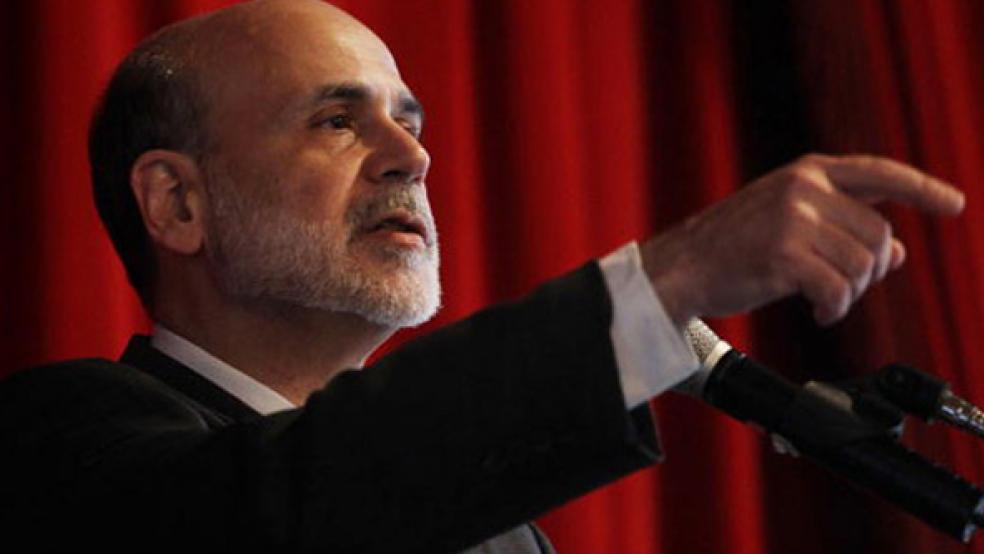As it tries to boost U.S. economic growth and keep inflation from falling too low, the Federal Reserve is going to buy at least $600 billion worth of longer-term Treasury securities between now and the middle of next year.
The Fed's top policymaking group, the Federal Open Market Committee, said the purchases are needed because unemployment is high, inflation lower than it should be, and improvement in both "has been disappointingly slow." In its statement after a two-day meeting, the committee said it stands ready to make additional purchases if the economy remains weak.
In the second and third quarters of this year, growth has averaged just under a 2 percent annual rate, not nearly fast enough to generate the jobs needed to lower the 9.6 percent jobless rate.
The purchases follow a program that ended earlier this year, under which the Fed bought about $1.7 trillion of mortgage-backed and Treasury securities, a strategy known as quantitative easing because it effectively lowers interest rates for businesses and consumers. Fed Chairman Ben Bernanke indicated in several recent speeches that additional purchases were coming; the amount is within the range that was expected.
Market reaction was muted. Stocks fell after the announcement, but bounced back to levels of earlier in the day, and ended with small gains. Yields on Treasury securities fell slightly, except for those on 10-year notes and 30-year bonds, perhaps because very few purchases will be bonds.
The hope is that further lowering already low interest rates will encourage more business investment and more household consumption. Many economists are skeptical that lower rates will do much to speed up growth, but with the central bank's target for overnight rates already virtually at zero, the Fed has little else it could do to help the economy.
Meanwhile, with Republicans taking control of the House of Representatives and the Democratic majority in the Senate significantly reduced, it’s unlikely that Congress would approve additional federal spending to stimulate economic activity.
The earlier purchases expanded the Fed’s balance sheet to about $2.3 trillion. But the value of the mortgage-backed assets is gradually falling as mortgages get paid off. To keep the balance sheet from shrinking, the FOMC decided earlier to buy replacement securities. That means that along with the $600 billion, an additional $250 billion to $300 billion worth of securities will be purchased, the New York Federal Reserve Bank, which manages the balance sheet, said in a statement.
The FOMC also said it will review the pace of the purchases and "will adjust the program as needed to best foster maximum employment and price stability," which is the Fed's legal mandate.
Terry Sheehan, an analyst with Stone & McCarthy Research Associates, said in an interview with The Fiscal Times that that language is "open-ended. The use of unconventional means to stimulate monetary policy will come down to as much as it takes, as long as it takes."
Some economists have urged the Fed not to expand its balance sheet any further because such "quantitative easing" could lead to asset bubbles and excessive inflation in the future. Thomas M. Hoenig, president of the Kansas City Fed, dissented at the FOMC meeting because he believed "the risks of additional securities purchases outweighed the benefits," the committee statement said.




